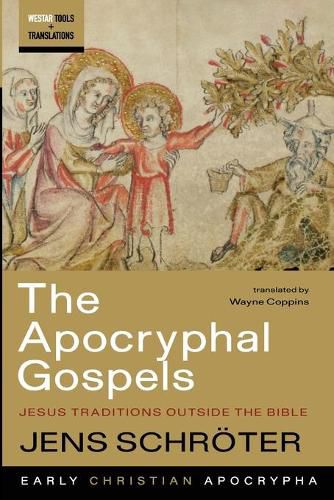Readings Newsletter
Become a Readings Member to make your shopping experience even easier.
Sign in or sign up for free!
You’re not far away from qualifying for FREE standard shipping within Australia
You’ve qualified for FREE standard shipping within Australia
The cart is loading…






This title is printed to order. This book may have been self-published. If so, we cannot guarantee the quality of the content. In the main most books will have gone through the editing process however some may not. We therefore suggest that you be aware of this before ordering this book. If in doubt check either the author or publisher’s details as we are unable to accept any returns unless they are faulty. Please contact us if you have any questions.
The New Testament contains four accounts of the life of Jesus. To some people in antiquity, four was too many. Disagreements in the Gospels over what Jesus said and did triggered debate between insiders and drew criticism from outsiders. To other people, four was not enough. As early as the first century, Christians wrote additional gospels, each with their own portrayal of Jesus and depictions of his relationships with his family, his followers, and his Father. While these gospels were not included in the New Testament canon, many continued to be important for Christian thought and practice; all these texts, moreover, are significant for the study of emergent Christianity. This short, accessible introduction draws on current scholarship on the various noncanonical (or apocryphal) gospels to present this fascinating literature to readers eager to learn more about their origins, contents, and meaning. The book begins with a discussion of the distinction between gospels that became canonical and those that came to be regarded as apocryphal. Then, the gospels are presented in chapters arranged according to Jesus’ ministry: from Infancy Gospels to texts about Jesus’ earthly career to his passion, resurrection, and postresurrection appearances. This book demonstrates how early Christians confronted crises in their communities through story, crafting new accounts of Jesus’ life that expanded upon and sometimes challenged the Gospels that became canonical. The apocryphal gospels are not Scripture, but they are no less valuable for understanding Christianity in its formative centuries and beyond.
$9.00 standard shipping within Australia
FREE standard shipping within Australia for orders over $100.00
Express & International shipping calculated at checkout
This title is printed to order. This book may have been self-published. If so, we cannot guarantee the quality of the content. In the main most books will have gone through the editing process however some may not. We therefore suggest that you be aware of this before ordering this book. If in doubt check either the author or publisher’s details as we are unable to accept any returns unless they are faulty. Please contact us if you have any questions.
The New Testament contains four accounts of the life of Jesus. To some people in antiquity, four was too many. Disagreements in the Gospels over what Jesus said and did triggered debate between insiders and drew criticism from outsiders. To other people, four was not enough. As early as the first century, Christians wrote additional gospels, each with their own portrayal of Jesus and depictions of his relationships with his family, his followers, and his Father. While these gospels were not included in the New Testament canon, many continued to be important for Christian thought and practice; all these texts, moreover, are significant for the study of emergent Christianity. This short, accessible introduction draws on current scholarship on the various noncanonical (or apocryphal) gospels to present this fascinating literature to readers eager to learn more about their origins, contents, and meaning. The book begins with a discussion of the distinction between gospels that became canonical and those that came to be regarded as apocryphal. Then, the gospels are presented in chapters arranged according to Jesus’ ministry: from Infancy Gospels to texts about Jesus’ earthly career to his passion, resurrection, and postresurrection appearances. This book demonstrates how early Christians confronted crises in their communities through story, crafting new accounts of Jesus’ life that expanded upon and sometimes challenged the Gospels that became canonical. The apocryphal gospels are not Scripture, but they are no less valuable for understanding Christianity in its formative centuries and beyond.